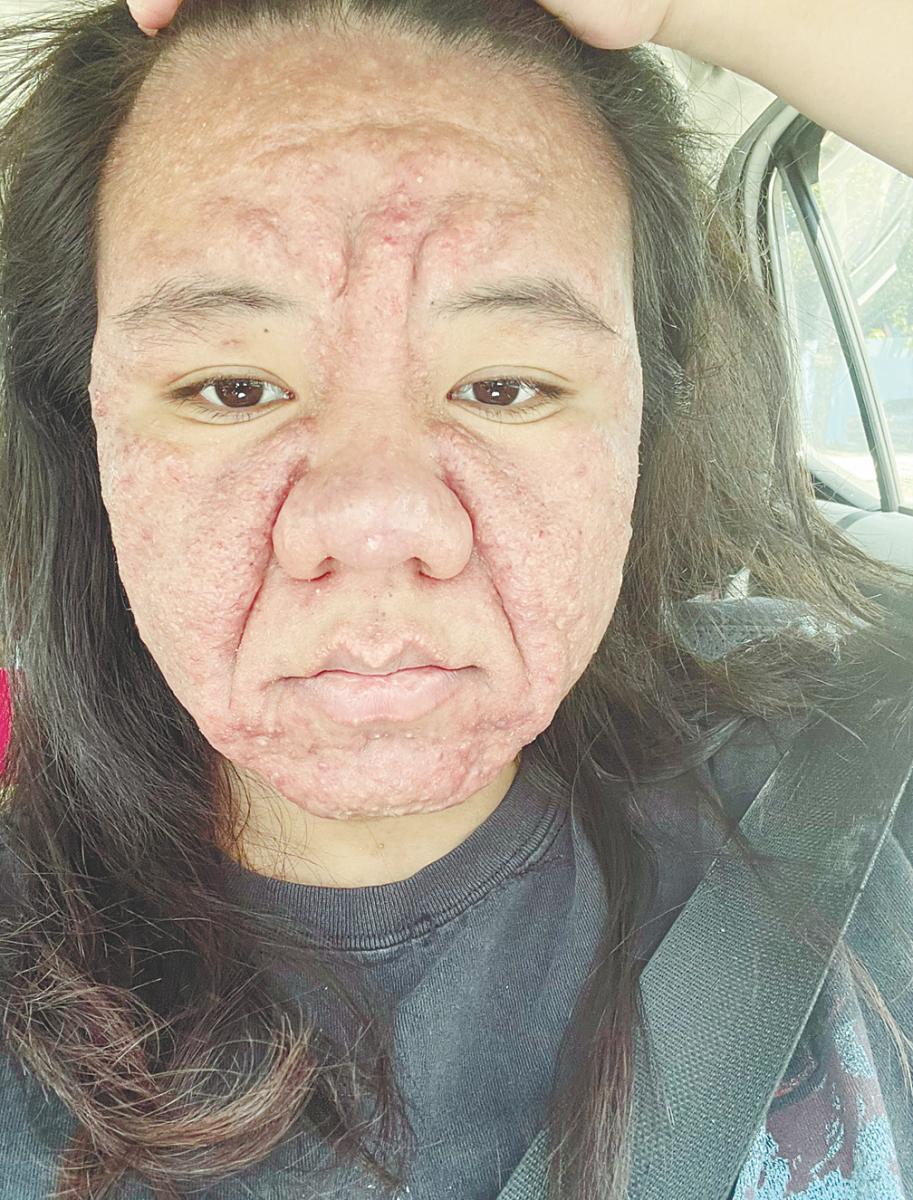PETALING JAYA: The glow of pregnancy is a common cliche – one that rarely reflects the full truth.
For some women, the journey to motherhood comes with painful, unspoken changes.
A 28-year-old marketing manager, who wants to be known only as Farah, is one of them.
Now eight months pregnant, she is grappling with a rare skin disorder that has transformed her appearance, challenging her confidence.
“The first change I noticed was when my skincare routine stopped working.
“I started waking up every morning with new pustule-type acne and my skin looked sunburnt and felt extremely itchy. I didn’t even know then that I was pregnant,” she said.
But the changes didn’t stop there. By her fourth month, Farah noticed deepening smile lines.
By the sixth, frown lines began to appear and became more pronounced each week.
“I read so many articles and knew there wasn’t much that could be done during pregnancy,” she said.
“I talked to my husband about my insecurities, and he reminded me that this was only temporary. He supported me in every way he could.”
Farah hopes that by sharing her story, more people will gain a deeper understanding of the physical and emotional challenges many women quietly endure during pregnancy.
She also underscored the importance of regular prenatal check-ups, not just for the baby’s health but for the mother’s well-being too.
Consultant dermatologist and Malaysian Allergic Contact Dermatitis Subcommittee president Dr Teeba Raja highlighted that acne affects up to 42% of pregnant women, particularly during the first trimester. This is due to elevated androgen levels which increase sebum production.
She added that other common changes include dullness and pigmentation, particularly melasma, often referred to as the “pregnancy mask”.
“Pigmentation issues like melasma and linea nigra, a dark vertical line that often appears on the abdomen, typically emerge in the second and third trimesters, as estrogen and melanocyte-stimulating hormone levels rise,” she said.
“By the third trimester, increased dryness and sensitivity may occur as the skin stretches and undergoes structural shifts.”

Teeba also urged caution when choosing skincare products during pregnancy.
“Pregnant women should avoid retinoids, both topical and oral, as they have been linked to teratogenic effects,” she warned.
“Hydroquinone should also be avoided due to its high systemic absorption, and salicylic acid should be used with caution, especially in high concentrations or oral forms.”
Instead, she advised using non-comedogenic, hydrating cleansers to avoid clogged pores while maintaining skin health.
“Azelaic acid and niacinamide are mild enough to treat acne and pigmentation safely.
“Daily vitamin C serums and broad-spectrum sunscreen are essential for protecting against UV-induced damage. Always stay hydrated both inside and out with barrier-repairing moisturisers.”
She also reassured expectant mothers that most pregnancy-related skin concerns are temporary.
“Acne usually resolves within a few months postpartum. Melasma may take longer to fade and, in some cases, may persist. But skin hydration and elasticity typically return over time with proper postpartum care.”
Above all, she encouraged women to show themselves compassion throughout their pregnancy journey.
“It’s important to remember that these skin changes are normal, natural and largely reversible.”
Universiti Putra Malaysia Obstetrics & Gynaecology clinical lecturer Dr Nurul Iftida Basri said hormonal changes during pregnancy can significantly affect the skin – from acne and hyperpigmentation to dryness and even early signs of ageing, such as wrinkles.
Nurul Iftida warned that certain symptoms, like facial swelling, could signal more serious complications such as pre-eclampsia, a condition caused by high blood pressure that leads to excessive water retention.
She also said stress and lack of sleep can further aggravate these skin conditions. Support from partners and loved ones plays a vital role in how women cope.
She recommended that expectant mothers maintain a balanced diet, stay hydrated, avoid oily foods and use gentle moisturisers to manage dryness and prevent stretch marks.









